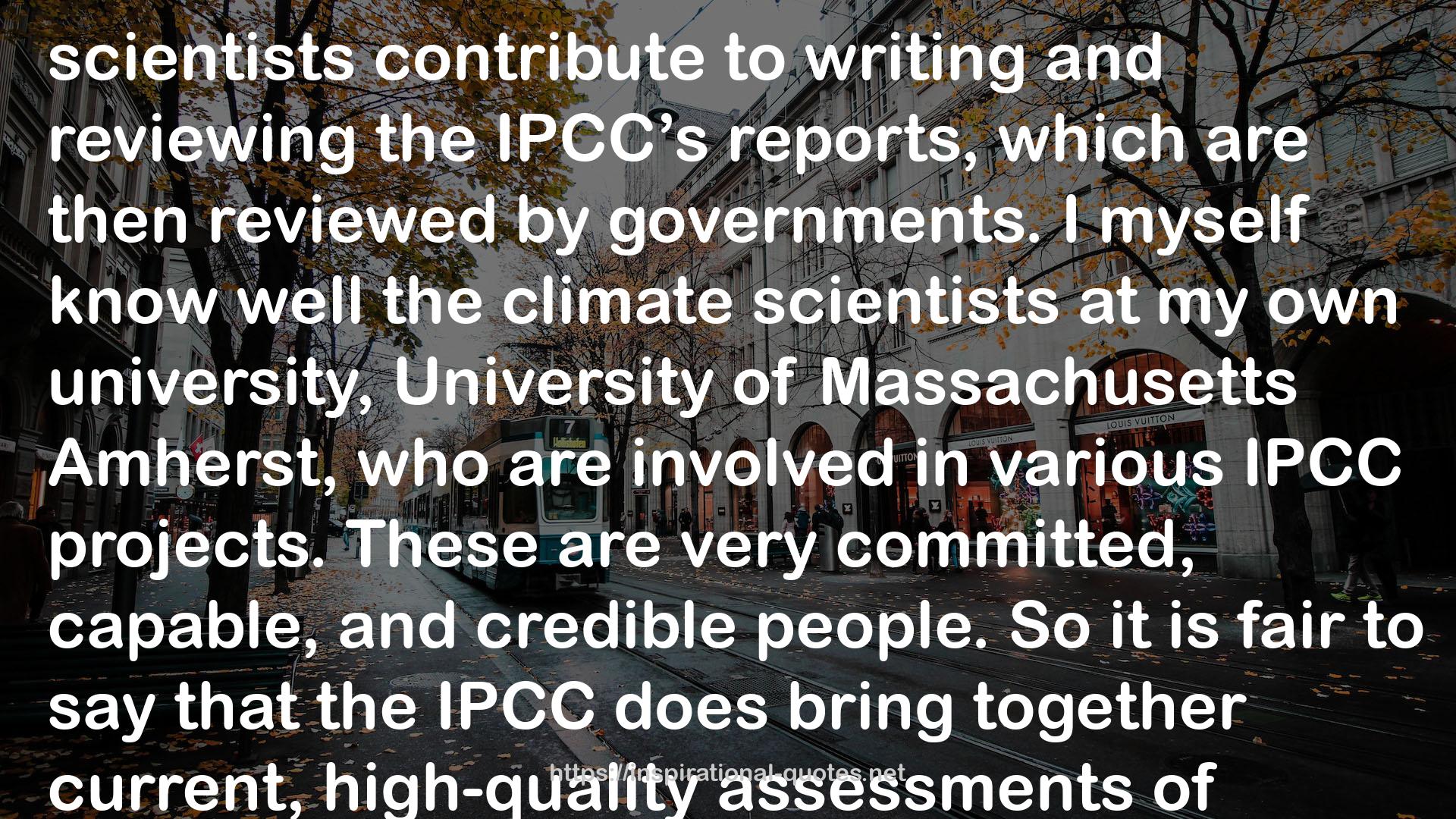" scientists contribute to writing and reviewing the IPCC’s reports, which are then reviewed by governments. I myself know well the climate scientists at my own university, University of Massachusetts Amherst, who are involved in various IPCC projects. These are very committed, capable, and credible people. So it is fair to say that the IPCC does bring together current, high-quality assessments of mainstream climate science on any given set of questions. There remains a small band of climate deniers, whose positions are given credence and then amplified in the mainstream media far beyond what is warranted given the scientific findings they have produced.24 Nevertheless, while it is implausible, we cannot totally rule out the possibility that some of their positions may have merit. But, exactly to this point, it is also the case that the IPCC is scrupulous in recognizing a high degree of uncertainty in all of its estimates. For example, its targets for the needed level of emissions reductions are never presented as a single figure, as in, say, “we must reduce emissions by 80 percent within twenty years or face these certain terrible consequences.” Rather, the IPCC always presents its conclusions in terms of ranges and probabilities. It is also true that the IPCC has regularly changed its assessments to a significant degree, as illustrated in recent years by some of its most important publications. Thus, in its 2007 Fourth Assessment Report, the IPCC concluded that in order to stabilize the global average (mean) temperature "
― Noam Chomsky , The Climate Crisis and the Global Green New Deal: The Political Economy of Saving the Planet
